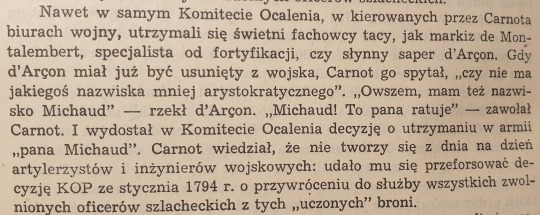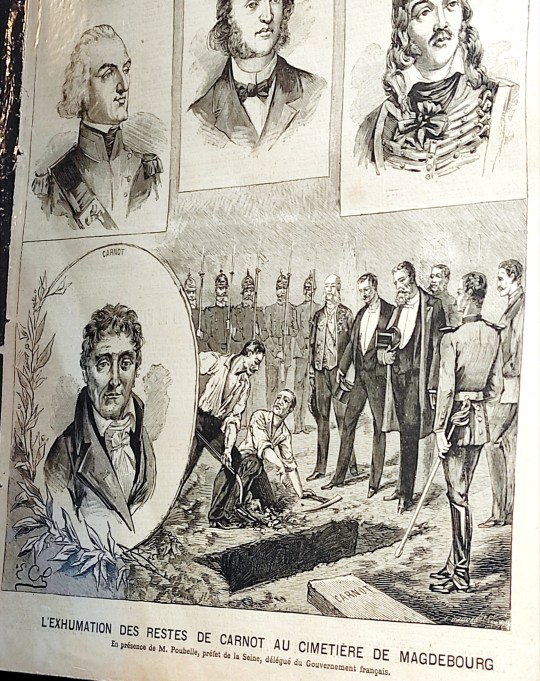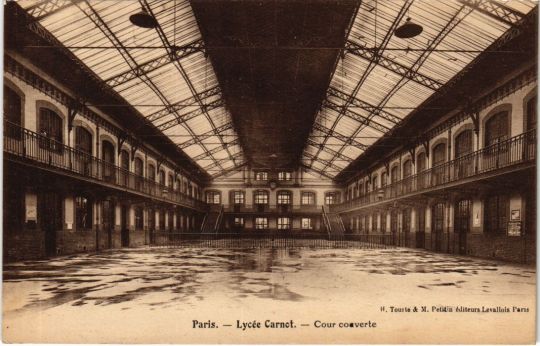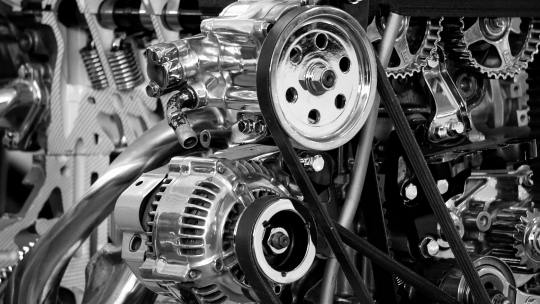#carnot
Text
welcome to the french revolution. we've got catty bitch of a journalist who got executed for being a catty bitch, even cattier bitch journalist who somehow didn't get executed but wrote from his bathtub, big loud guy who cheats on his wife and cheats in his financial reports, fancy dressed lawyer who takes his dog on two hour walks, broke 26 year old goth genius, a few women who burn down buildings and kill shopkeepers, another woman who suicide baited the dog walking lawyer, failed playwright who commits white collar crime, hot bisexual with an orgy cave, another journalist whose paper is primarily expletives, two guys who blew up civilians for no good reason, guy who brings a knife to the government to threaten his fellow officials, guy who thought he got paralyzed from having too much sex, asshole mathematician whose grandson became president of france, and a guy everyone calls bonbon.
#in order:#desmoulins#marat#danton#robespierre#saint just#the srrc#olympe de gouges#fabre#herault#hebert#fouche and collot#tallien#couthon#carnot#augustin#french revolution#frev#shitpost#pigeon.txt
352 notes
·
View notes
Text


A print of Lazare Carnot at the battle of Wattignies from Les Français Illustres, by Gustave Demoulin, Hachette, Paris, 1898. Illustration by Gilbert.
57 notes
·
View notes
Note
in your opinion, what was the most significant mistake the jacobins ever made? (i tend to like them much more than other factions in the frev, but i still want to know how Problematic my Faves were)
Good question. I'm not sure which period you want to talk about regarding the Jacobins, so let's discuss the one after the fall of Louis XVI's monarchy. I will mainly encompass the Mountain faction.
Regarding tactical errors, according to some historians, including Antoine Resche, a contemporary historian who has made excellent videos on the French Revolution under the name Histony, which can be found on the Veni Vidi Sensi website, leans towards the lack of left-wing unity as one of the errors. And honestly, he's not wrong. Some might think that the elimination of Danton and the Hébertists was a turning point. But it was salvageable (I've already discussed what I thought in one of my posts). Only the Jacobins made the grave mistake of eliminating Chaumette, among others, even though he had refused to participate in an attempt to overthrow the Convention, which showed he was the most reasonable. Keeping him as the prosecutor of the Commune would have appeased some of the sans-culottes. Instead, the Convention has him arrested and executed. I understand that at that time the Convention could not afford an overthrow and was afraid Chaumette might change his mind, but by doing so, they alienated a large part of the sans-culottes. The wave of executions like Gobel or Chaumette was one of the most disastrous moves.
Another one is the non-application of the Ventôse laws, but it is true that some Montagnards blocked this, and the Marais was against these laws.
Also, being a fervent advocate of freedom of expression, there should never have been decrees holding journalists accountable. I don't particularly like Desmoulins, but executing him for his writings… Moreover, it will not prevent opinions from forming and solidifying.
Regarding moral errors: In addition to the travesties of justice I mentioned concerning the Hébertists and the Dantonists, there were other cases. When Girondin deputies were dismissed, most deputies did not want them dead, let alone imprisoned. They were only supposed to remain under house arrest. The problem is, many of them escaped and incited uprisings in the departments, which further exacerbated the already endangered Republic. Despite all I have to reproach them for, some Girondins were honorable people, notably Manon Roland and Vergniaud (even if Vergniaud had an ambiguous attitude, he still remained under house arrest) who stay in Paris. Yet they were judged, condemned to death, and executed along with other Girondins who incited or attempted uprisings and fled Paris. It wasn't even a tactical error; it was unfair.
Another very minor point concerns the Convention entirely, and this is my opinion. Why separate Marie Antoinette from her son? I understand there were royalists in Paris (the assassination of the remarkable Louis Michel Lepeletier by one of Louis XVI's former guards, among other events, will demonstrate this) who would do anything to get their hands on him as Louis XVII, which would have been dangerous. It would have been better to monitor the child's education closely given this context, but why not have strict supervision while leaving him in his mother's care, even though we know her opinions? I don't want to demonize Antoine Simon, executed in Thermidor; he wasn't a brute; he had compassion for the former queen and liked the child, but it's horrible. Being myself a proponent of reforms for jail to ensure the child remains very close to his parents, I protest against this. And the royalists seized upon it to portray an image of an inhumane Republic.
Women's rights were not respected, as I discussed in my post "Women's rights suppressed."
One of the most serious errors was the Prairial Law. When this bill presented by Couthon and later approved by the Committee of Public Safety and voted on by the Convention passed, many innocents suffered. Following the execution of the "Robespierrists," the Convention lied, saying it had not approved it, which was false.
Paradoxically, there was no internal elimination necessary at that time, notably the case of Carnot, who gave orders behind the backs of others to wage a war of conquest, which would have jeopardized the Battle of Fleurus if Saint-Just had not intervened with the order. I don't understand why he wasn't arrested; generals have been executed for less than that. This man doesn't deserve his title as the organizer of Victory, but having eliminated those who had really done the job like Saint-Just, among others, he could claim that title.
I realize I have done a critical job on the Montagnards even though I admire them, so a few lines to rehabilitate them. Most of them refused the irresponsible war of conquest advocated by the Girondins. Finally, fatigue was fatal to them. They put their best efforts into saving France, but most became ill (Couthon, Robespierre; I don't know if Billaud-Varenne was beginning to develop his dysentery or if his illness came after his deportation). Robespierre made a grave mistake by slamming the door on the Committee of Public Safety following a dispute among its members, then a few weeks later making a speech where he designated culprits without naming names (like Fouché, for example), so some wrongly believed they were the ones being designated when they weren't. Fouché and his gang played on this.
I want to say that Jean Clement Martin explained that if the Girondins are seen as victims, it's because they didn't have time to put the Montagnards on the guillotine. There were quite a few assassinations of Montagnard deputies (some think that Barbaroux manipulated Corday to kill Marat, Joseph Chalier was killed in atrocious conditions by the Girondins of Lyon, Isnard's speech). When the Jacobins acted, there was an internal civil war and an external war against the Revolution, plus a depreciated currency. And they saved it. For a while, they tried to accommodate (at least the majority of them) their adversaries. Then the gloves came off. But they remained in democracy, even in the worst moments. The Jacobins supported the abolition of slavery (not just them), and most of the major Jacobin figures fully supported the uprisings by slaves against the colonists.
Napoleon, although praised today for inheriting a better situation thanks to the efforts of his predecessors, through his dictatorial attitudes, betrayal of the Jacobins, and wars of conquest (all the wrong things), left France in a worse state with the return of the Bourbons. Revolutionaries like Marat predicted from the outset of the French Revolution that if the Girondins persisted in declaring war, even if France were victorious, there would be a military dictatorship and subsequently the return of the Bourbons.
All this leads me to think that it was the revolutionaries of the Mountain who were pragmatic and Napoleon the "idealist" in the wrong sense of the term, given his grandiosity and stupid belief (in my opinion) that he could impose hereditary dictatorship, exploit other countries without them retaliating (but that's another story).
Finally, the Jacobins in power were exhausted; they even lacked sleep hours due to their internal schedules. Before the Prairial Law was passed, there was an assassination attempt on Collot, so it was thought that the royalist danger was present. Plus, this law was disfigured by those who presented it; they thought they would only use it against people like Fouché, Carrier, Barras, Fréron, Tallien—des despicable men who dishonored France and the Revolution. It was they who later presented themselves as victims of the Jacobins when they were the worst during the Terror. Contrary to belief, heads rolled after the Terror; just look at the execution of Romme and the other Montagnards, the execution of Babeuf, the fact that anyone who demanded the constitution of 1793 could be punishable by death.
Finally, I want to say that despite my speeches, I don't believe in providential men; if France could have a sense of greatness during this period, it's thanks to the people. In Algeria, we have the slogan: "One hero only: the people."
#frev#french revolution#Roland Manon#Gironde#Montagne#jacobin#Terror#Fouché#Saint Just#Carnot#Robespierre#couthon#Romme Charles#Babeuf#Vergniaud#chaumette#camille desmoulins#marat#napoleon#georges danton#tallien
26 notes
·
View notes
Text

LeBas stayed out because Elisabeth didn't want to go in, Carnot is just a weenie. Marat and SJ couldn't be arsed, no 'haunted house' compares to the real horrors of society in their eyes 🫡
80 notes
·
View notes
Text

(via The French Revolution, 1789-1794. Civil Society by Jan Baszkiewicz and Stefan Meller)
"Even in the Committee of [Public] Safety, in the war office superintended by Carnot, there remained excellent professionals, such as the marquis de Montalembert, a specialist in fortifications, or d'Arçon, the famous sapper. When d'Arçon was about to be expelled from the military, Carnot asked him whether "he by chance had a less aristocratic surname". "Indeed, I am also called Michaud," said d'Arçon. "Michaud! That saves you, monsieur!" exclaimed Carnot. And he persuaded the Committee to keep "monsieur Michaud" in the army. Carnot knew that artillerymen and engineers are not made overnight: he managed to force through a CPS decree (from January 1794) that reinstated the "learned" noble officers."
The ci-devants are an underutilized source of comedy. (Also, d'Arçon failed to clarify that the full form was de Michaud.)
15 notes
·
View notes
Text

A rough drawing of Frev-Carnot. Just drawing for fun~
11 notes
·
View notes
Text
“I owe you particular thanks for the care you want to give my wife; I recommend her to you; she is a sincere patriot, and I love her madly.”
Letter from Napoleon to Carnot, 9 May 1796.

Source: L'Europe et la Révolution française, V. 5, by Albert Sorel. Page 76.
#napoleon#Josephine#Carnot#letter#napoleon bonaparte#josephine bonaparte#josephine de beauharnais#napoleonic era#napoleonic#french revolution#frev#la révolution française#Albert Sorel#Sorel#quotes#quote#first french empire#L'Europe et la Révolution française
20 notes
·
View notes
Text

"The exhumation of Carnot at the graveyard of Magdebourg - In the presence of M. Poubelle, Seine prefect, deleguee to the French government"
Front page of Le Petit Parisien
10 notes
·
View notes
Text

Rue d'Enghien II
#photographie urbaine#urban photography#figuration#abstraction#minimalisme#minimalism#argentique#analog photography#rollei prego 125#kodak portra 400#ombre#shadow#lumière#light#rue d'enghien#carnot#69002#lyon#rhône#auvergne rhône alpes#france#photographers on tumblr#poltredlyon#lyonurb#brumpicts#frédéric brumby
65 notes
·
View notes
Text

Courtyard of the Lycée Carnot school in the 17th district of Paris
French vintage postcard
#vintage#tarjeta#briefkaart#postcard#photography#postal#school#carte postale#sepia#ephemera#district#historic#carnot#paris#french#ansichtskarte#postkarte#lyce#17th#courtyard#postkaart#photo
3 notes
·
View notes
Text
temi natali
stamani in quarta si concludeva - dopo ampio dibattito, condivisione ed integrazione di punti di vista - che Carnot (quello del teorema del coseno) essendo evidentemente reincarnazione di Pitagora (quello della metempsicosi) doveva essere del segno del toro, opposto allo scorpione (trasmutazione, morte simbolica e rinascita) di Pitagora
da Giornale intimo di una fanciulla instabile, anonimo sec. xx
#giornale#vita vissuta#enimmi di vita vissuta#astrologia#tema natale#carnot#coseno#teorema del coseno#pitagora#trigonometria#scorpione#toro#squola#problemi di scuola#problemi di squola#scuola
2 notes
·
View notes
Text
the fact that carnot called robespierre and saint just "ridiculous dictators" when they criticized his conduct in the war is sooooo funny to me.
saint just: hey man, maybe you should cool it with the imperialism and keep it to a defensive war
carnot: THIS IS LITERALLY 1984
61 notes
·
View notes
Text
It's kind of weird to realize that in pretty much every document mentioning him, Hippolyte Carnot is only remembered as the father of the future assassinated president.
Those are achievements, I guess.
16 notes
·
View notes
Note
you mentioned that carnot went behind the others' backs to wage a war of conquest, would you mind talking about that a little more? i don't know that much about carnot and his war opinions but i would like to! thank you for your excellent posts :)
Before discussing Carnot's actions during wartime, it's essential to understand his political journey, as it inherently shapes his conduct during conflicts. He exhibits a true weathercock attitude, common among politicians of his era (and persisting today), although not as extreme as someone like Fouché.
Initially allied with the Girondins on war-related issues, he maintained this stance while also voting for the King's death, similar to the Montagnards, and advocating for progressive taxation. Personally, I view his alliance with the Montagnards as opportunism that persisted throughout his life, unlike Couthon, whose allegiance to the Mountain seemed more genuine, but this is solely my perspective. His ideas of war of conquest to better pillage, they will be constant throughout his life.
Later on, Carnot found himself at odds with Saint-Just, particularly regarding wartime strategy. Contrary to popular belief, Carnot could be more decisive than Saint-Just in matters of punishment even if Saint Just established army discipline with others.
While Carnot did a decent job in terms of armament, the ideas of Saint-Just and others significantly contributed to improving the army and securing victories. Saint-Just's encouragement of fraternity among soldiers, requisitioning shoes from aristocrats to distribute to barefoot soldiers who fought without shoes, and his equal treatment of generals and soldiers, instauring fraternity , and the courage to put himself in the front on the front line which earned him admiration including his enemies like Marc Antoine Baudot, boosted troop morale.
Moreover, there was a replacement of generals genuinely motivated to ensure the army's victory because some generals with affiliations to royalists, aristocratic backgrounds, or little sympathy for the Republic lacked the commitment to save France. Carnot failed to address these issues, despite opportunities.
One might argue that Carnot's physical presence in Paris to coordinate operations was necessary, but his interference with specialists on the ground hindered progress.
Regarding the question of Fleurus, a significant victory for the French Republic, Carnot's actions trouble me deeply. He demanded a reduction in Jourdan's army by 18,000 men, issuing the order behind Saint-Just's back, with plans for these troops to serve under General Pichegru and plunder Rhin. Saint-Just intercepted and canceled the order, preventing a potential defeat at Fleurus. These actions occurred without the knowledge of his colleagues deputies who advocated for French armies to remain within natural borders.
To support my claims, here is an excerpt from Saint-Just's last speech:
"In the absence of this member, a military expedition, which will be judged later because it cannot yet be made known, but which I consider insane given the prevailing circumstances, was conceived. Orders were given to draw, without informing me or my colleagues, 18,000 men from the Army of Sambre-et-Meuse for this expedition. I was not informed, why? If this order, given on the 1st of Messidor, had been executed, the Army of Sambre-et-Meuse would have been forced to leave Charleroi, perhaps to withdraw under Philippeville and Givet, and to abandon Avesnes and Maubeuge. Shall I add that this army had become the most important?
The enemy had brought all its forces against it, leaving it without powder, cannons, or bread. Soldiers died of hunger there while kissing their rifles. An agent, whom my colleagues and I sent to the Committee to request ammunition, was not received, which would have flattered me had he been, and I owe this praise to Prieur, who seemed sensitive to our needs. Victory was necessary, and we achieved it.
The Battle of Fleurus contributed to opening up Belgium. I desire justice to be done to everyone and victories to be honored, but not in a manner that honors the government more than the armies, for only those who are in battles win them, and only those who are powerful benefit from them. Victories should therefore be praised, and oneself forgotten'".
Strangely, whereas Saint-Just spares Billaud-Varennes even if he critize him, Carnot is rightly put back in his place for his actions. He should have been at least fired to the moment when he make order on the back of his colleagues for this such action . In these period generals could have been executed for less than that. General Hanriot ( mistreated by history too), who effectively contained Parisian excesses through persuasion and not repression ( indication of good competence) , opposed Carnot's plan to strip Paris of his gunners, indicating Carnot's interference in matters beyond his expertise. I admit it was a free tackle against Carnot that one.
Skipping over the events of the Thermidorians, Carnot's adept political maneuvering aligns him once again with the right and its wars of conquest were able to continue being free from any important opponent in this matter during the period of Directoire. He becomes one of the five directors, earning the nickname "Organizer of Victory." However, this title is both pompous and false, as Carnot's contributions were not singular. He carried out violent repression against the Babouvists and accepted Napoleon's pardon, serving as Minister of War under the Consulate, despite his opposition to the creation of Napoleon's empire and was marginalized for it within the government. During the Hundred Days, Carnot's weathercock attitude contrasts with Prieur's steadfastness, ultimately resulting in his exile without ever returning to France because of the statut of regicide ( too bad that the punishment was the same for Prieur de la Marne). Why am I more indulgent to Prieur de la Marne than Carnot?
I mean that Prieur opposed Napoleon and his coup d'état on 18 Brumaire to the point of being dismissed immediately. It seems that he mainly adhered to the hundred days of Napoleon for fear of a new restoration of the Bourbons.
Carnot accepted the title of Minister of the Interior and was made a count. Big difference for me.
In conclusion, Carnot's conquest wars cost France dearly, morally and pragmatically, potentially favoring the emergence of a military dictator, the end of the French Revolution and facilitating the restoration of the Bourbons. It's regrettable that he didn't heed his colleagues' advice on this matter. This is solely my opinion, and I apologize to Carnot's admirers ( once again it's okay to contradict me) . All information provided is drawn from sources like Albert Ollivier, Soboul, etc. You can explore revolutionary portraits on the Veni Vidi Sensi website for further insights.
P.S.: Thank you for the compliment on my posts; I strive to offer the best insights drawn from historians and contemporaries.
17 notes
·
View notes
Photo

Carnot and Rouget de L’Isle (pinterest, etc.) M. Roulleau and M. Bartholdi.....didn’t he do the Statue of Liberty? (yes) These statues exist in real life.
10 notes
·
View notes
Text
MOTORES TÉRMICOS
En ésta entrada os dejo un enlace sobre el movimiento de un pistón dentro de un cilindro de un motor térmico, según el ciclo ideal de Carnot. Podéis simularlo cambiando los diferentes parámetros de los ejes de coordenadas y anotar sus diferencias. También podéis modificar las condiciones de trabajo variando la temperatura, la presión, la cantidad de moles de gas...
He seleccionado este recurso para cumplir con un múltiple objetivo: por sus contenidos transversales en matemáticas, física y química e ingeniería, por la calidad expositiva del modelo mediante un aprendizaje con gamificación basado en flipped classroom.
Datos del recurso:
Carnot's Engine
Licencia Creative Commons Reconocimiento-No Comercial-Compartir Igual 3.0 España
INTEF Ministerio de Educación, Cultura y Deporte
Escena construida con Descartes

Foto: Mike Bird, fotógrafo de vehículos.
pexels.com
Licencia: Creative Commons Zero
0 notes